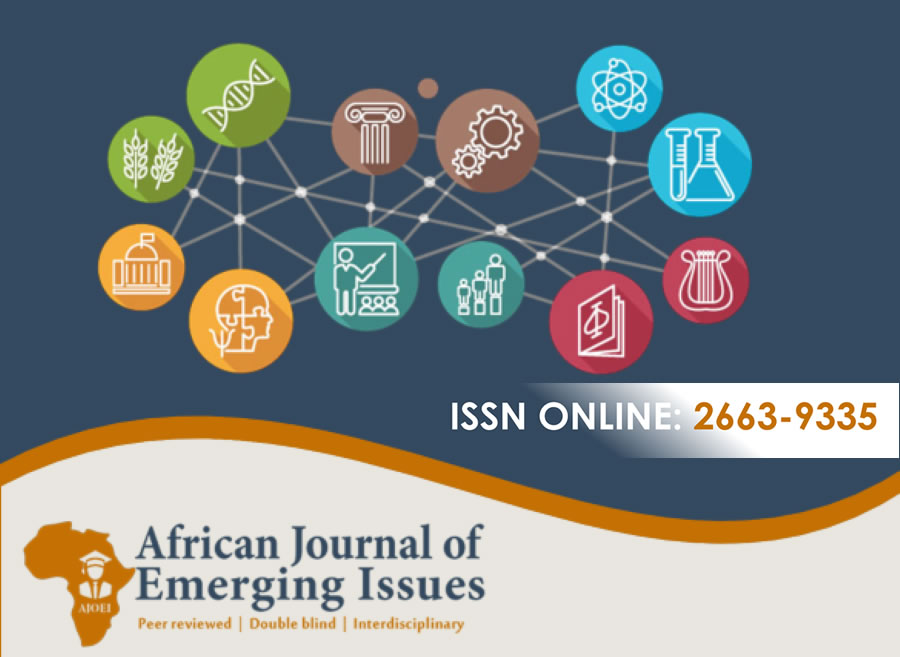ROLE OF QUALITY AND COST OF SERVICES TOWARDS BUILDING PUBLIC TRUST
Abstract
Quality and cost of services offered by public sector entities, including Ghana’s district assemblies, continue to dominate scholarly and practitioner discourses. The problem analysis highlights governance dilemmas in which efforts to keep fees low weaken service reliability, while fee increases without visible gains deepen distrust. This paper explored the role of service quality and service cost in building public trust in the district assemblies. The study conducted fourteen interviews in the Ga West Municipal Assembly and the Accra Metropolitan Assembly to gather qualitative data. The data were analysed using deductive thematic summary analysis, reinforced with direct quotations from the study participants. Poor service quality was widely linked to the erosion of public trust. While official service fees were expected and acceptable, the added burden of time delays, paperwork, and opaque facilitation charges undermined public trust. There was a preference for private sector providers despite the lower charges by the district assemblies. The study concludes that trust turns on a value-for-money judgement and recommends clear fee schedules, electronic payments, service charters and routine maintenance to align fair costs with reliable delivery.
References
Afrobarometer. (2021, April 8). In Ghana, citizens support taxation but find tax information hard to get (Dispatch No. 440). https://www.afrobarometer.org/wp-content/uploads/2022/02/AD440-Ghana-Citizens-support-taxation-but-find-tax-information-hard-to-get-Afrobarometer-8april21.pdf
Beeri, I., Zaidan, A., & Zeedan, R. (2021). Willingness to pay taxes through mutual trust: The effect of fairness, governability, tax-enforcement and outsourcing on local tax collection rates. Governance, 35(4), 1061–1084. https://doi.org/10.1111/gove.12662
Benk, S., Budak, T., & Yüzbaşı, B. (2019). The impact of perceived tax fairness on tax compliance: A study in a developing country. International Journal of Public Administration, 42(14), 1200–1210. https://doi.org/10.1080/01900692.2018.1544713
Dann, C. (2022, July 26). Does public trust in government matter for effective policy-making? Economics Observatory. https://www.economicsobservatory.com/does-public-trust-in-government-matter-for-effective-policy-making
Fife, S. T., & Gossner, J. D. (2024). Deductive qualitative analysis: Evaluating, expanding, and refining theory. International Journal of Qualitative Methods, 23, 16094069241244856. https://doi.org/10.1177/16094069241244856
Fjeldstad, O.-H. (2004). What’s trust got to do with it? Non-payment of service charges by local authorities in South Africa. The Journal of Modern African Studies, 42(4), 539–562. https://doi.org/10.1017/S0022278X04000394
Ho, M., & Cho, W. (2022). Expectancy disconfirmation and citizen trust: Evidence from local service encounters. Public Management Review, 24(9), 1381–1402. https://doi.org/10.1080/14719037.2021.1901054
Kampen, J. K., Maddens, B., & Vermunt, J. K. (2003). Trust and satisfaction: A case study of the micro-performance. In A. Salminen (Ed.), Governing networks (pp. 319–326). IOS Press. https://research.tilburguniversity.edu/en/publications/trust-and-satisfaction-a-case-study-of-the-micro-performance
Krah, R., & Mertens, G. (2023). Financial transparency, trust and willingness to pay in local governments of sub-Saharan Africa. Journal of Public Budgeting, Accounting & Financial Management, 35(6), 100–120. https://doi.org/10.1108/JPBAFM-06-2022-0110
Lanin, D., & Hermanto, N. (2019). The effect of service quality on public satisfaction and public trust in local government in Indonesia. International Journal of Social Economics, 46(6), 377–392. https://doi.org/10.1108/IJSE-04-2017-0151
Levi, M. (1988). Of rule and revenue. University of California Press.
OECD. (2024). OECD survey on drivers of trust in public institutions: 2024 results. OECD Publishing. https://doi.org/10.1787/9a20554b-en
OECD; International Federation of Accountants; & Association of Chartered Certified Accountants. (2024). Public trust in tax 2024: Latin America and beyond. OECD Publishing. https://doi.org/10.1787/52ce48d5-en
Oliver, R. L. (1980). A cognitive model of the antecedents and consequences of satisfaction decisions. Journal of Marketing Research, 17(4), 460–469. https://doi.org/10.2307/3150499
Parasuraman, A., Zeithaml, V. A., & Berry, L. L. (1988). SERVQUAL: A multiple-item scale for measuring consumer perceptions of service quality. Journal of Retailing, 64(1), 12–40.
PytlikZillig, L. M., & Kimbrough, C. D. (2016). Consensus on conceptualisations and definitions of trust: Are we there yet? In E. Shockley, T. M. S. Neal, L. M. Pytlik-Zillig, & B. H. Bornstein (Eds.), Interdisciplinary perspectives on trust: Towards theoretical and methodological integration (pp. 17–47). Springer International Publishing. https://doi.org/10.1007/978-3-319-22261-5_2
Scott, G. K. (2025). Influence of service availability and accessibility on public trust in Ghana’s district assemblies. Reviewed International Journal of Political Science & Public Administration, 6(1), 199–208. https://www.reviewedjournals.com
Thokoa, R. L., Naidoo, V., & Herbst, T. H. H. (2022). A review of service quality: Case of the National Treasury of South Africa. Africa’s Public Service Delivery and Performance Review, 10(1), a567. https://doi.org/10.4102/apsdpr.v10i1.567
Taufiqurokhman, T., Prasodjo, A., & Aisyah, R. (2024). The impact of e-service quality on public trust and public satisfaction in e-government services. International Journal of Data and Network Science, 8(1), 1–12. https://doi.org/10.5267/j.ijdns.2024.1.002
Van de Walle, S., & Bouckaert, G. (2003). Public service performance and trust in government: The problem of causality. International Journal of Public Administration, 26(8–9), 891–913. https://doi.org/10.1081/PAD-120019352
Van de Walle, S., & Van Ryzin, G. G. (2019). Expectations, performance, and citizen satisfaction with public services: Using disconfirmation theory to explain citizen perception. Public Administration Review, 79(2), 259–268. https://doi.org/10.1111/puar.12995
World Bank. (2024a). Worldwide Governance Indicators: Government effectiveness. https://info.worldbank.org/governance/wgi
World Bank. (2024b). Worldwide Governance Indicators: Methodology and 2024 update. https://info.worldbank.org/governance/wgi/methodology





